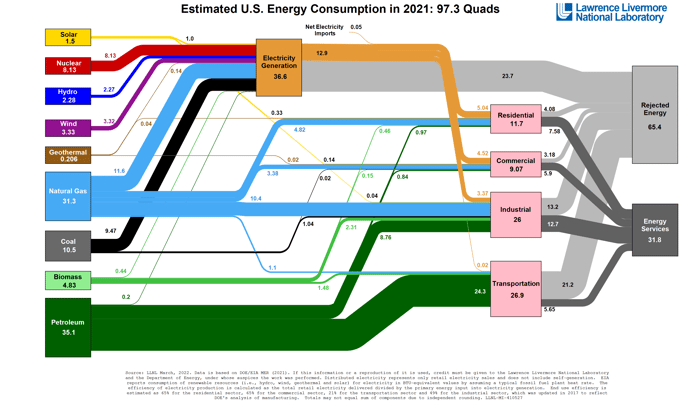RethinkX | 6 May 2024
It takes a substantial amount of energy to pump oil or natural gas out of the ground, refine it into fuels, and get those fuels to the vehicles or power stations via pipelines and tanker trucks where they will finally be utilized. Then, when the fuels are burned in combustion engines in vehicles and power stations, roughly two-thirds of the energy contained in the fuel itself is lost to waste heat, with only about one-third being converted into useful motion. All told, combustion engines are at best around 25% efficient from end to end.
If instead we capture energy from the sun and wind, and use it directly in the form of electricity in our vehicles, appliances and other devices, much of the mechanical inefficiency of pumping, refining, transporting and burning fossil fuels in combustion engines is avoided. The net result is that a fully electrified civilization needs only about half of the primary energy of a fossil fuel-based civilization to deliver the same services.
The Sankey diagram of energy consumption, produced by Lawrence Livermore National Laboratory, below, shows that in energy use across the U.S. economy, 65.4% is “rejected” or lost to the environment as waste, while only 31.8% is actually utilized.

A new, clean energy future run by 100% SWB is inevitable, and will transform our energy system entirely...
Solar photovoltaics, onshore wind power and lithium-ion batteries do not operate by the traditional rules of extractive and polluting resources that have governed humanity’s relationship with energy for over a century.
Learn more about the future of the energy sector.
Published on: 12/07/23
Sign up with your email address to receive research, news and analyses from RethinkX.